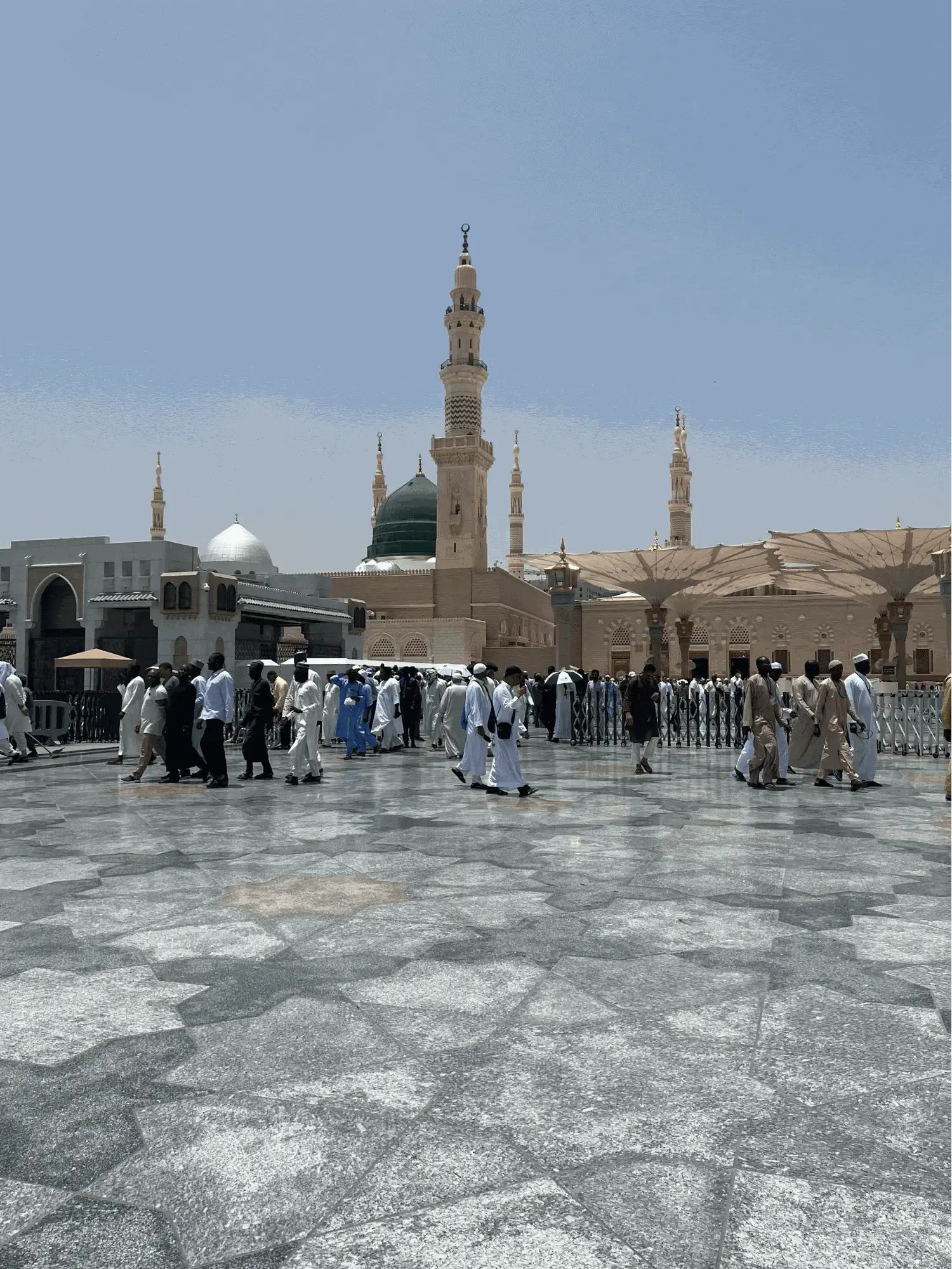

I took this picture when in Madinah this year
Every day of Hajj was harder than the last. I thought the 12+ hour flight was brutal until the scorching Madinah heat hit me in the face. The temperature was technically higher in Madinah, but walking for hours during Hajj made our time in Makkah almost unbearable. We got lost multiple times, forcing us to walk for grueling hours in the sun. Umrah was frustrating when a few people pushed past us, but our Farewell Tawaf forced me to cling to my husband’s side as we bullied our way through an ocean of people. On more than one occasion, the realization hit me: This is the hardest thing I’ve ever had to do.
Yet those hardships yielded beautiful fruit. Madinah was indescribably peaceful. My emotions overtook me and I had to gather myself when I was leaving Masjid Nabawi for the last time. The friends I made during Hajj are so genuine and loving. The women encouraged each other to be patient at every turn. Our guides imparted powerful spiritual reminders that still ring in my ears a month later. One such lecture gave me a newfound respect for Hajar (AS), a woman whose Sabr and Tawakkul I didn’t fully appreciate before. The scholar was giving an overview of Prophet Ibrahim’s life, which is the blueprint for many of the rituals of Hajj in addition to being a story of constant struggle.
In his early life, Ibrahim (A) was alone. His relationship with his father was fractured because Ibrahim (A) chose the path of truth over falsehood. So he asked Allah to grant him a righteous child. And he got his wish, when Hajar (AS) gave birth to Ismaeel (A). He loved his family but was commanded by Allah to leave his wife and his son in the middle of the desert soon after he was born. In the famous story of Safa and Marwa, Hajar (AS) sought out help and was blessed with Zamzam and civilization. Once Ismaeel (A) reached his teenage years, Allah commanded Ibrahim (A) to sacrifice Ismaeel (A), the son and beloved companion he had hoped for for so many years. Ibrahim (A) discussed this with his son and Ismaeel (A) submitted himself willingly. This must have been a proud moment for Ibrahim (A) to see his son fulfill the wish he had for a righteous child. So Ibrahim (A) prepared, setting his son down and getting his knife in hand. In those final moments leading up to the deed, Ibrahim (A) couldn’t look his son in the eyes, so he turned Ismaeel’s (A) face away. When Ibrahim (A) was making the motion to cut his son’s neck, Allah miraculously replaced his son with a sheep. Ibrahim (A) was told to sacrifice the thing that was close to his heart and he did it, so Allah rewarded his willingness to put the Divine before his love of the world. Both Hajj and life will force us to sacrifice the things that we love. We have to trust that Allah will create a way out of our hardship from places we can’t imagine.
Since coming back, I’ve been thinking deeply about how to bottle up the essence of Hajj in my life now. The kind of sacrifices we make at Hajj and the ones that Ibrahim’s (A) family had to make are like those monumental events in our lives that act as a catalyst for change. But as we know, lasting change doesn’t come from the adrenaline and motivation of a single incident alone. Lasting change means that I take that energy and I make different choices in my day to day life. It’s silly, but for me, the sugary morning coffee I enjoy is probably getting in the way of my weightloss goals. When my books gather dust on the shelf, I’m missing out on valuable knowledge. Skipping my daily walk might get me 30 minutes of extra scrolling time, but my mood is terrible afterwards. Often when we think about positive change, we forget these small moments. It’s not exciting or new in any way, but a better version of ourselves is made in the small choices we make. All of it shapes our personality and our lived experience. So I just have to start small. Bismillah.


All Rights Reserved © 2025 Femmerepublica. Powered by TechWrath